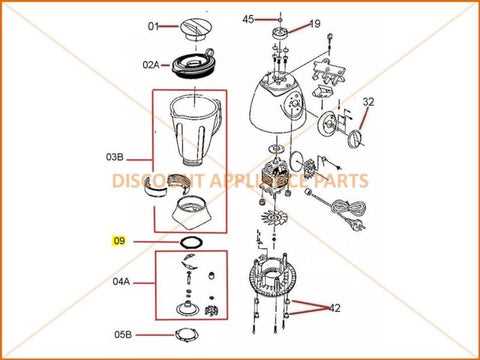
In any culinary environment, understanding the essential elements of a mixing appliance is crucial for efficient operation. Each component plays a significant role in ensuring that tasks, from whisking to blending, are executed flawlessly. Familiarity with these elements not only enhances performance but also aids in maintenance and troubleshooting.
Identifying individual pieces allows users to appreciate how they work together to achieve desired results. By examining the layout and function of each section, one can better grasp the intricacies involved in the mixing process. This knowledge is invaluable for anyone looking to optimize their experience in the kitchen.
Moreover, having access to a clear representation of these components can simplify repairs and replacements, ensuring that the appliance remains in top condition. Understanding the arrangement and relationship of each element is key to maximizing the longevity and effectiveness of the device.
Understanding Your Sunbeam Mixmaster
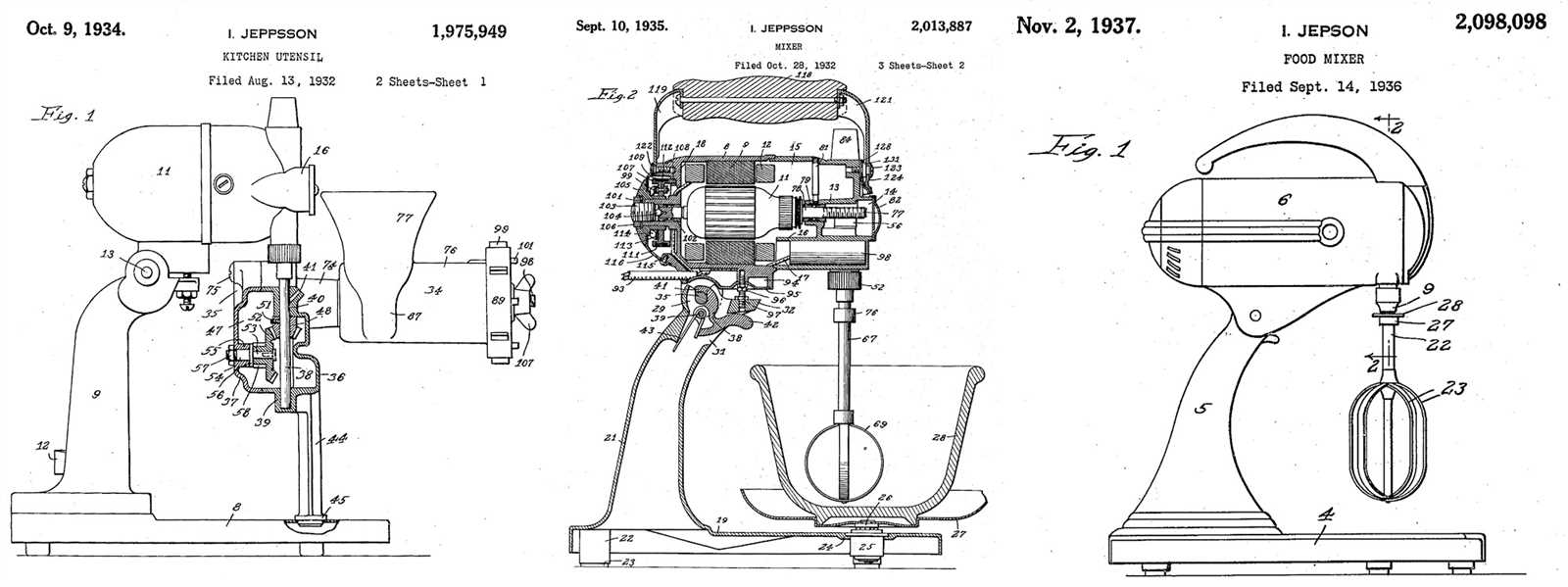
Gaining familiarity with your kitchen appliance enhances your culinary experiences. Knowing the components and their functions allows for efficient usage, making meal preparation enjoyable and effortless.
Key Components
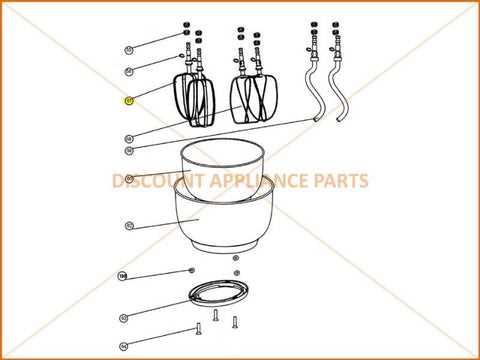
Familiarize yourself with the essential elements of the device:
- Motor: The heart of the machine, providing necessary power.
- Bowls: Different sizes accommodate various mixing tasks.
- Attachments: Specialized tools for whipping, kneading, or mixing.
Usage Tips
To maximize your appliance’s potential, consider the following suggestions:
- Always select the appropriate attachment for your task.
- Adjust speed settings based on the mixture’s consistency.
- Regularly clean components to maintain performance and hygiene.
Key Components of the Mixer
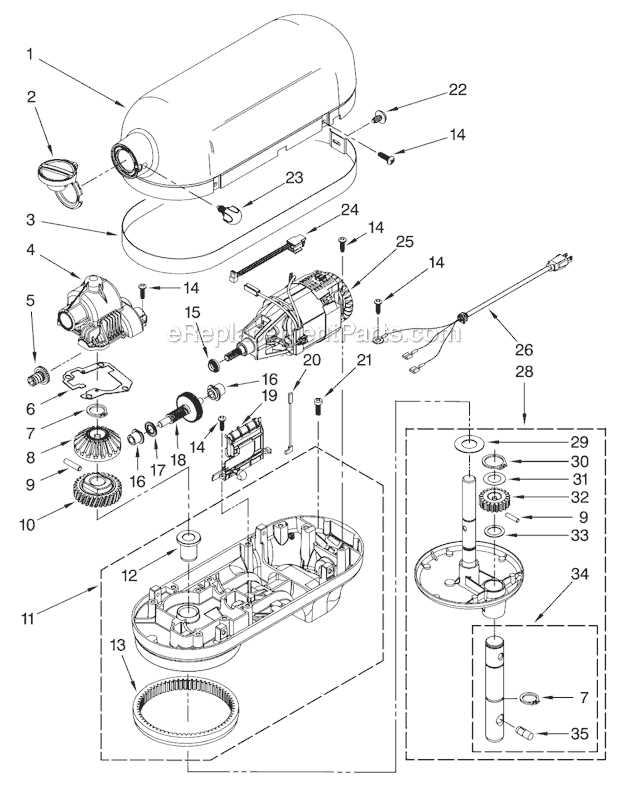
This section explores the essential elements that contribute to the functionality of a mixing appliance. Understanding these components is crucial for effective operation and maintenance, ensuring optimal performance in culinary tasks.
Understanding the Main Parts
The appliance consists of several critical components that work in unison to achieve desired results. Key elements include the motor, beaters, and control mechanisms, each playing a vital role in the mixing process.
Component Functionality
Each part serves a distinct purpose that enhances the overall efficiency of the device. The motor provides power, while the beaters facilitate the mixing of ingredients. The control mechanisms allow users to adjust speed settings according to their needs.
| Component | Function |
|---|---|
| Motor | Powers the mixing action |
| Beatters | Mixes and incorporates ingredients |
| Control Switch | Adjusts speed and settings |
Common Parts and Their Functions
Understanding the essential components of a kitchen appliance can enhance its usage and maintenance. Each element plays a vital role in ensuring the device operates effectively and meets various culinary needs.
Motor: The powerhouse of the unit, responsible for driving the mixing action and providing the necessary torque for different speeds.
Mixing Bowl: This container holds the ingredients during preparation, designed to withstand the forces exerted during mixing while allowing for easy access.
Attachments: Various tools such as whisks and dough hooks are interchangeable parts that cater to different mixing tasks, enabling versatility in food preparation.
Control Switch: The interface for the user, allowing for speed adjustments and operation mode selection, ensuring precise control during mixing.
Base: The sturdy foundation that houses the motor and supports all other components, contributing to stability during operation.
Familiarity with these key elements aids users in troubleshooting and optimizing their appliance for diverse cooking tasks.
Identifying Replacement Parts
Understanding the components of your appliance is essential for effective maintenance and repair. Knowing the various elements helps ensure that you can restore functionality and prolong the lifespan of your device.
Common Components to Consider
- Mixing Bowls
- Beaters and Whisks
- Drive Gear
- Speed Control Switch
- Power Cord
Finding Compatible Alternatives
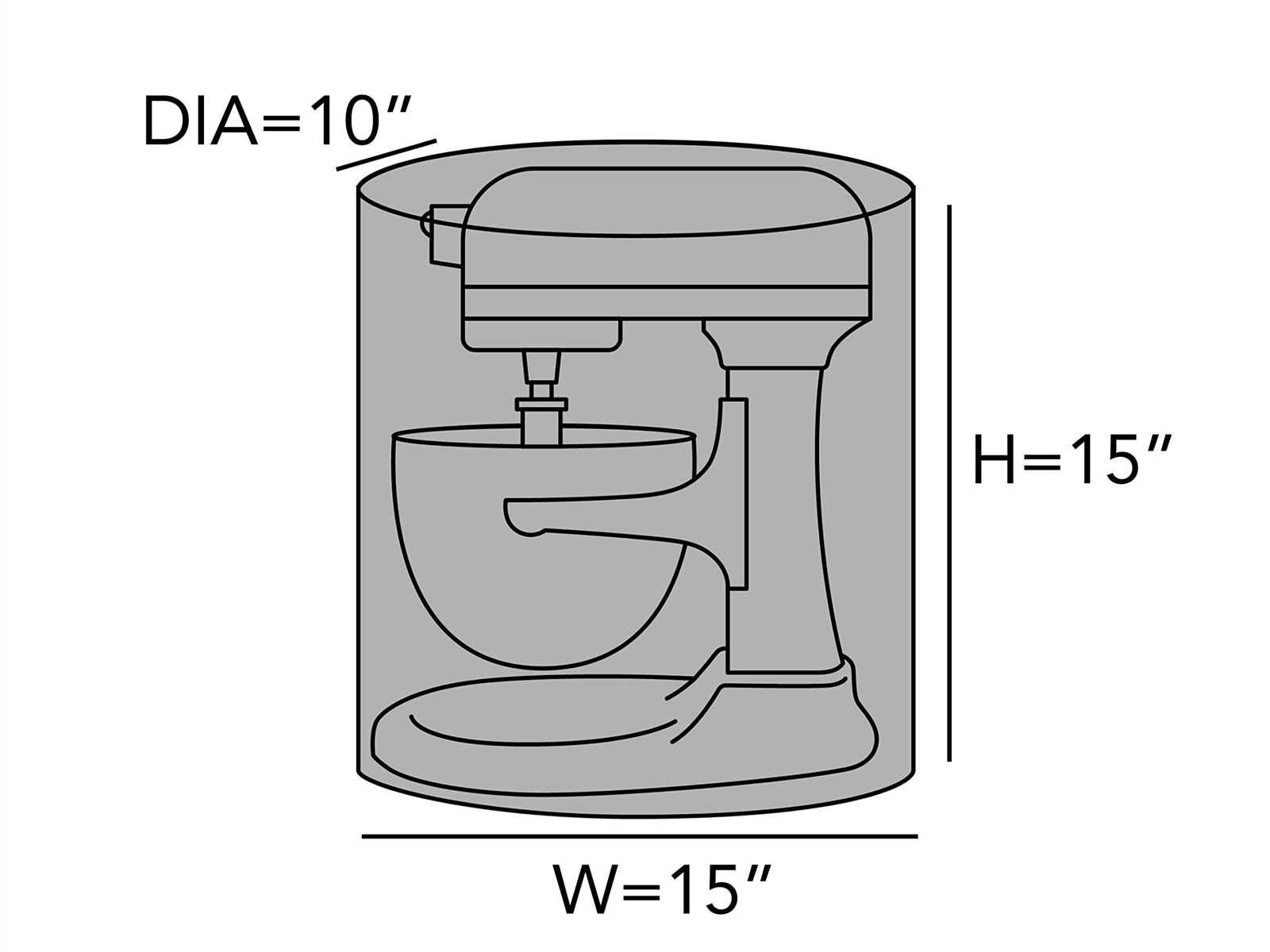
When seeking substitutes, it’s important to identify specifications and compatibility with your model. Consider the following:
- Check the original manual for part numbers.
- Consult reputable suppliers for equivalent options.
- Look for user reviews to gauge reliability.
Maintenance Tips for Longevity
Proper care and regular upkeep can significantly extend the lifespan of your kitchen appliance. By following a few essential practices, you can ensure optimal performance and durability over time.
- Regular Cleaning: Always clean the unit after each use. Wipe down surfaces and remove any food residue to prevent buildup.
- Inspect Components: Periodically check all parts for wear and tear. Replace any damaged or worn components promptly to maintain functionality.
- Avoid Overloading: Adhere to the manufacturer’s recommended capacity. Overloading can strain the motor and lead to premature failure.
- Store Properly: When not in use, store the appliance in a cool, dry place. Ensure it is covered to protect it from dust and moisture.
- Use Compatible Accessories: Always use accessories designed for your model. Using incompatible parts can cause damage and void warranties.
By implementing these simple yet effective maintenance tips, you can enjoy a reliable and efficient kitchen companion for years to come.
Repairing Common Issues
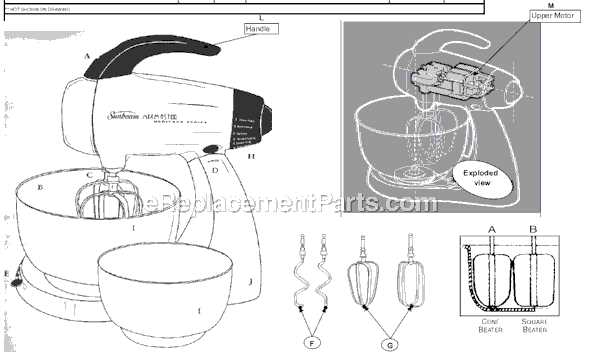
When facing operational challenges with your kitchen appliance, identifying and addressing the underlying problems can enhance its longevity and performance. Common issues may arise from wear and tear, improper usage, or even simple maintenance neglect.
Identifying Symptoms
To effectively troubleshoot, observe any unusual noises, inconsistent mixing, or overheating. These signs can indicate mechanical failures or electrical faults that require immediate attention.
Basic Fixes
Start by ensuring all components are securely attached and free from debris. Lubrication of moving parts and checking electrical connections can resolve many basic issues. If problems persist, consulting a manual or seeking professional assistance may be necessary.
Upgrading Your Mixmaster Equipment
Enhancing your kitchen appliance can significantly improve its performance and versatility. Upgrading specific components allows for better efficiency and a broader range of culinary possibilities. Whether you’re looking to replace outdated tools or expand your equipment, making thoughtful upgrades can elevate your cooking experience.
Choosing the Right Attachments
When considering enhancements, selecting compatible attachments is crucial. Various accessories can add functionality, such as different mixing bowls, beaters, and specialized tools for unique tasks. Evaluating the available options will help you find the perfect fit for your culinary needs.
Maintenance Tips for Longevity
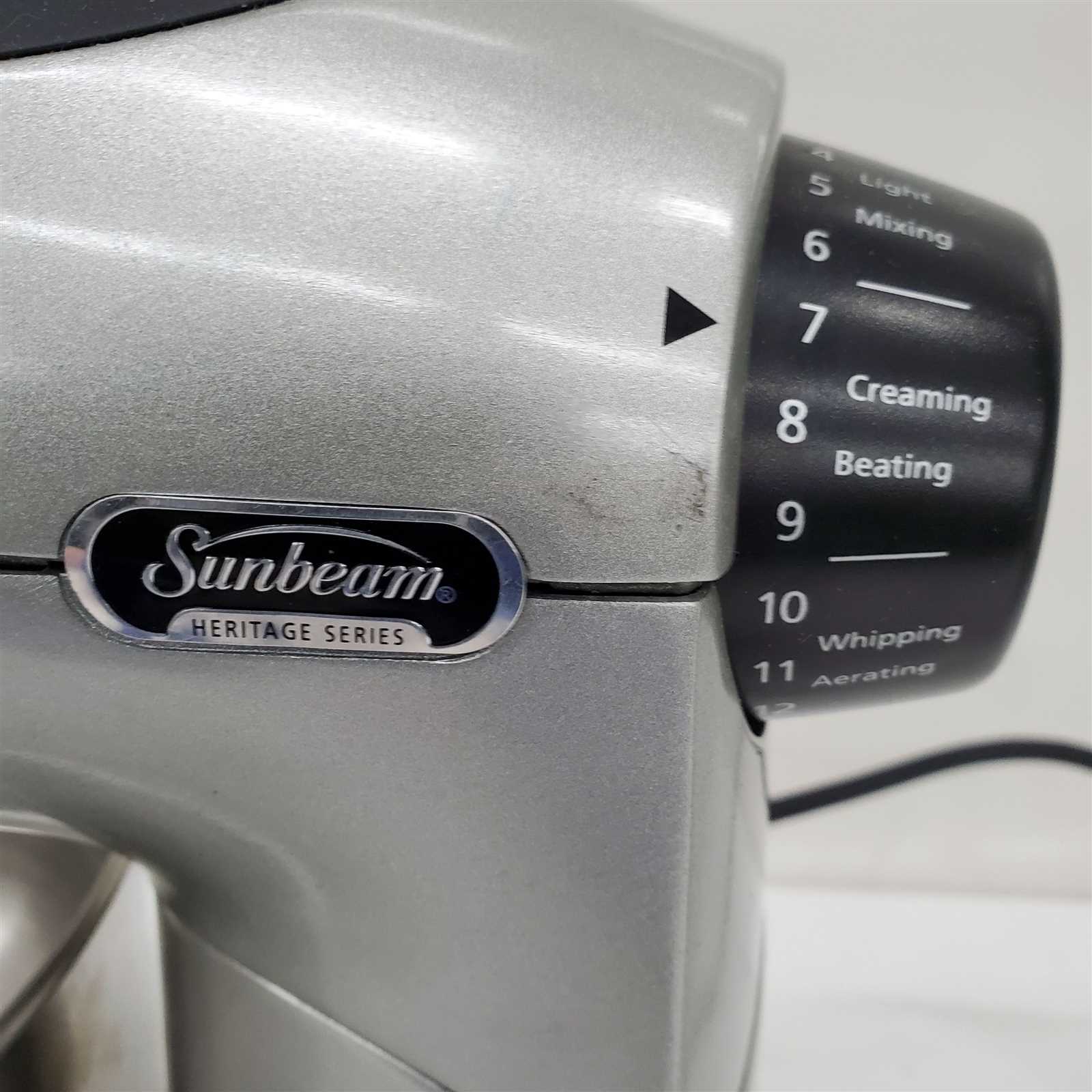
Regular maintenance ensures the longevity of your upgraded equipment. Cleaning and properly storing components after each use can prevent wear and tear. Additionally, keeping an eye on any signs of damage allows for timely repairs, preserving the quality of your kitchen tools.
| Upgrade Type | Description | Benefits |
|---|---|---|
| Mixing Bowl | Larger capacity or different materials | Improved mixing efficiency |
| Beatters | Heavy-duty or specialized designs | Enhanced mixing power |
| Accessories | Whisks, dough hooks, etc. | Versatile cooking options |
Historical Evolution of Mixmasters
The development of electric mixing appliances has significantly transformed culinary practices over the decades. These versatile tools have evolved from simple manual devices to sophisticated machines, enhancing the efficiency of food preparation and baking.
Initially introduced in the early 20th century, these appliances offered basic functionality, primarily focusing on mixing batter and dough. As technology progressed, innovations such as variable speed settings and interchangeable attachments emerged, allowing users to perform a wider range of tasks, from whipping cream to kneading bread.
The introduction of design enhancements also played a crucial role in their popularity. Modern models boast ergonomic features and stylish aesthetics, making them not only functional but also attractive additions to kitchen decor. Additionally, safety improvements have ensured user-friendly operation, accommodating both amateur cooks and seasoned chefs.
Overall, the evolution of these culinary aids reflects broader trends in technology and design, making them indispensable tools in contemporary kitchens. The continuous innovation in functionality and appearance demonstrates their lasting impact on cooking practices.
Compatibility of Parts Across Models
Understanding the interchangeability of components among various kitchen appliances can greatly enhance user experience and maintenance. Different models often share similar elements, allowing for seamless replacements and upgrades.
Key factors that influence compatibility include design specifications, component sizes, and operational functions. It is crucial to consult specific documentation or expert advice to ensure that selected components will function effectively in your unit.
Additionally, manufacturer guidelines may provide insights into which components are universally applicable. This knowledge can save time and resources, as well as extend the lifespan of your equipment.
Where to Purchase Authentic Parts
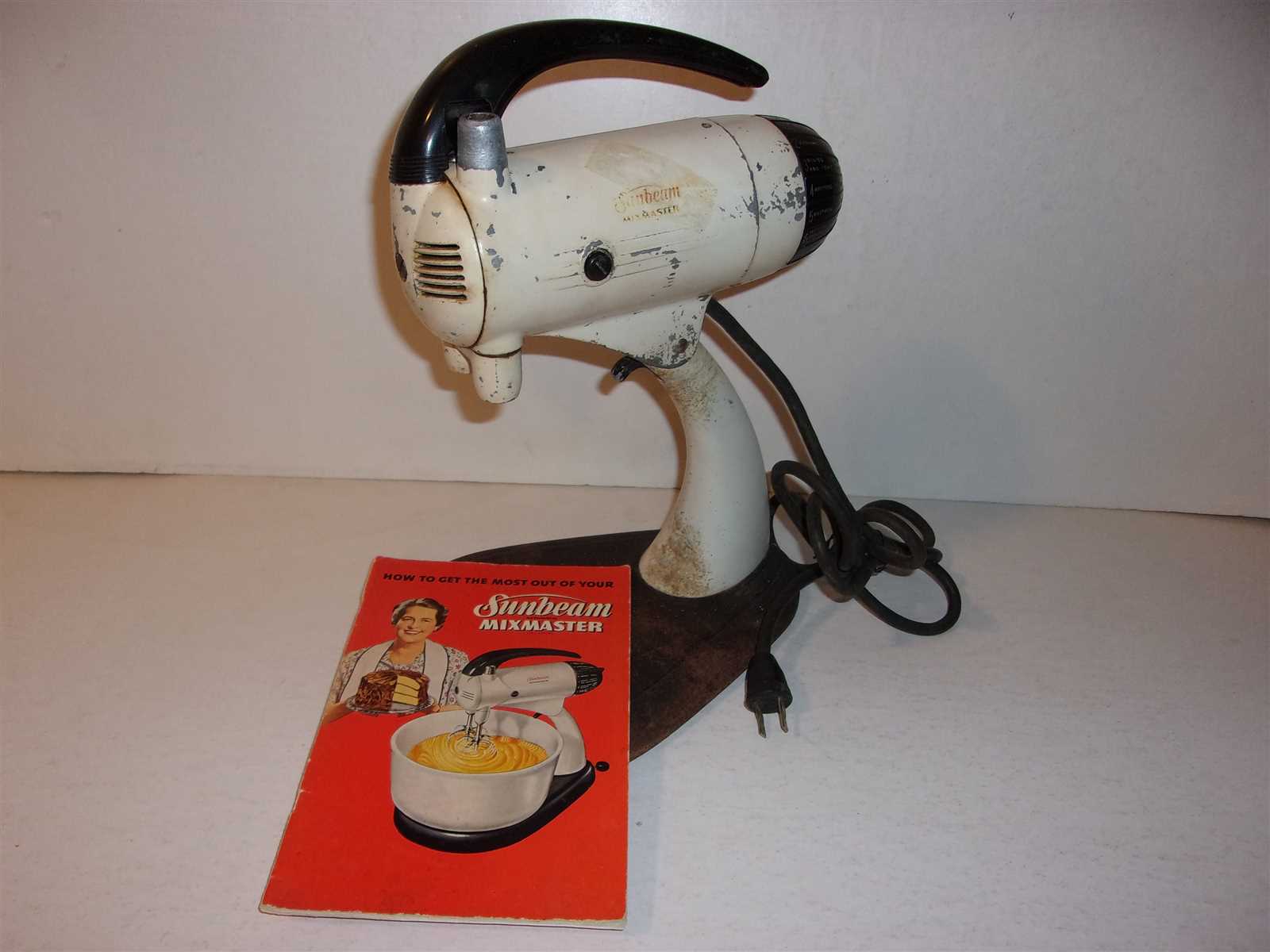
Finding reliable sources for genuine components is essential for maintaining the efficiency and longevity of your kitchen appliance. It’s important to ensure that the replacements you choose meet quality standards to avoid any potential issues.
Authorized Retailers
Start your search with authorized retailers who specialize in kitchen devices. These establishments often carry a wide range of original components, ensuring compatibility and durability.
Online Marketplaces
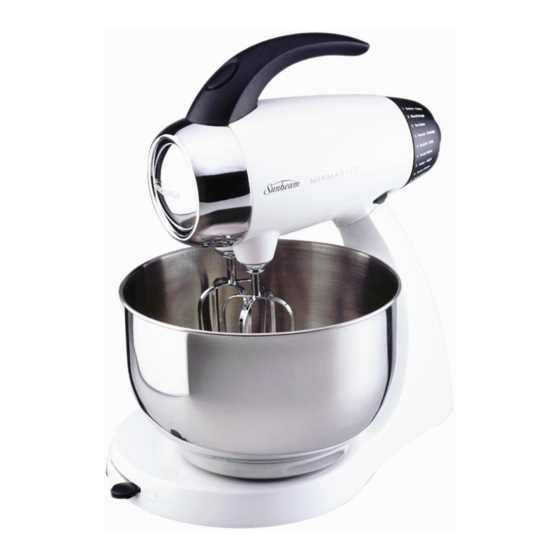
Numerous online platforms offer a selection of authentic components. Be sure to check the seller’s ratings and reviews to confirm their reliability before making a purchase.
| Source | Type | Notes |
|---|---|---|
| Official Website | Direct Purchase | Guaranteed authenticity |
| Specialty Stores | In-Store | Expert assistance available |
| Reputable Online Retailers | Online Purchase | Check reviews for trustworthiness |
Visual Reference for Assembly
This section provides a comprehensive visual guide to facilitate the assembly process of your kitchen appliance. Understanding the arrangement and functionality of each component is essential for optimal performance and durability.
Key Components Overview
Each element plays a significant role in the overall operation. Familiarizing yourself with these components will enhance your ability to assemble and maintain your device effectively.
Assembly Steps
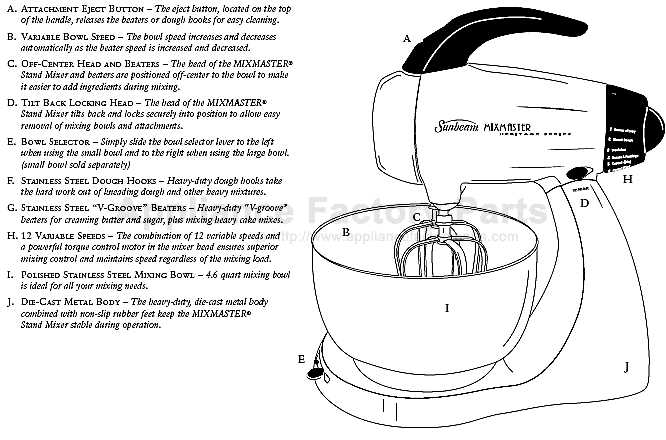
Follow the outlined steps meticulously to ensure a seamless assembly experience. Refer to the provided illustrations to match each part accurately, promoting a successful construction process.
Safety Considerations While Repairing
Ensuring safety during the repair of electrical appliances is paramount. Proper precautions can prevent accidents and injuries while maintaining the equipment’s integrity.
Before starting any maintenance work, consider the following guidelines:
- Unplug the device from the power source to avoid electric shock.
- Use insulated tools to minimize the risk of electrical hazards.
- Work in a well-ventilated area to prevent inhalation of harmful fumes.
- Wear safety goggles to protect your eyes from debris and splashes.
- Keep a first aid kit nearby in case of minor injuries.
Additionally, it’s essential to familiarize yourself with the appliance’s structure and functions to ensure safe handling during repairs.